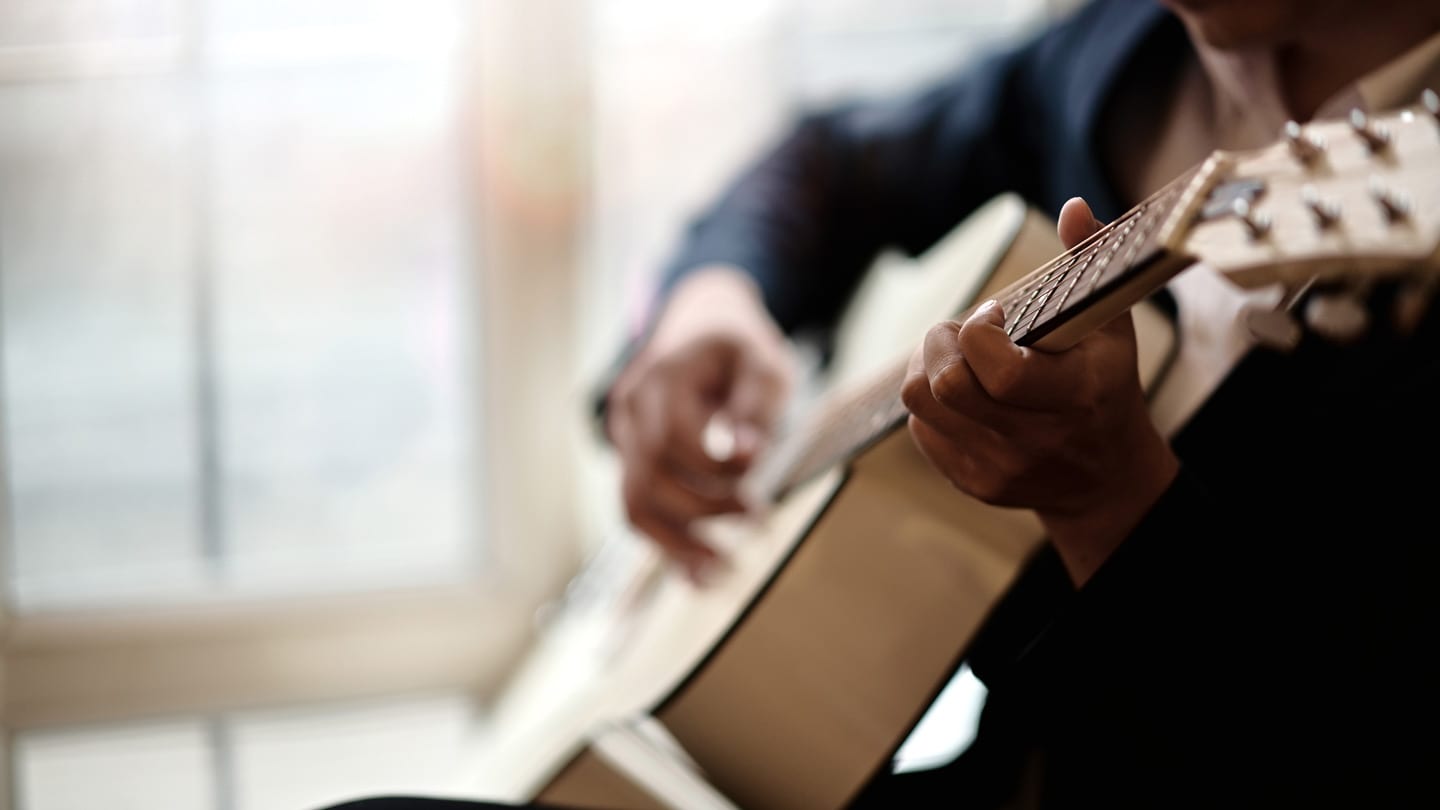About Music for dementia
Music for Dementia is a national campaign calling for music to be accessible for everyone with dementia. We believe everyone living with dementia should have access to Music as part of their care, from diagnosis, through treatment to end of life.
Formed in 2018 and backed by the Utley Foundation, we are working with more than 200 organisation including government, health and care professionals and policymakers to raise awareness and understanding and, ultimately, change policy. We also work closely with people living with dementia, family members and carers to include them in the campaign.
Music has a powerful and unique role to play in dementia care, enhancing quality of life for both people living with dementia and their carers. Research and lived experiences show that music can help reduce the often-distressing symptoms of dementia, such as agitation, apathy and anxiety. When music is personalised, it can enliven, stimulate and enable people to express themselves creatively beyond words – enabling people to be seen for who they are beyond their diagnosis. Music keeps us connected even when dementia begins to take over.
In addition to our campaigning work, we also offer two valuable services, m4d Radio and the Musical Map for Dementia. M4d Radio, launched in 2020, offers 24/7 era-specific music via any internet-enabled device to bring music direct into people’s homes. It’s both free and advertisement free, with little distracting talking and offers music from 30s-40s, 50s, 60s, 70s and a Mix channel.
The Musical Map for Dementia brings together in one place information about a huge variety and number of musical activities for people living with dementia and their carers to participate in or listen to across the UK. Many of these became online activities during COVID, but we are now seeing a return to in-person events. The postcode-searchable map – enabling people to find local events – is due to return imminently.
Enjoy music to make connections
Music is a wonderful tool in making connections, both with the past and with others in participating in a shared experience.
There are many ways in which you, or someone you care for, can enjoy music and keep it going as a core part of daily life. How we experience music is as important as the music we enjoy. Some examples are:
- Listening on your own or with others to favourite songs
- Singing along to familiar tunes
- Dancing, swaying or tapping to music
- Attending a concert or other musical event
- Watching a musical film or recording of an opera
- Playing a musical instrument on your own or as part of a group
- Singing in a choir.
Making a playlist is a great way to ensure that the music played is personal and meaningful. Research has shown that we have a ‘memory bump’ of music that we listened to in our mid-teens to late 20s, so this is a good starting point. The resulting list may be music that was popular at the time, however it may also be music that was played in the family home by parents or siblings, or music that was learned through playing an instrument.
Things to remember:
- Play at appropriate times in the day, not as ‘always on’ background noise that can be irritating
- Make sure the volume is correct for the person/people listening
- If using headphones, are they fitted comfortably and does the person know how to remove them if they want to stop listening.
Our ability to hear, process and respond to music stays with us into our final moments. This is because we are all musical beings with music hardwired into us while we are still in the womb. We process music in many ways – cognitively, emotionally, physiologically and socially. Multiple regions of the brain fire upon hearing music: muscular, auditory, visual and linguistic. This is why when verbal language skills have declined, it is still possible to sing words or lyrics from a song because a different part of the brain is being used because you’re recalling them through music.
Engaging in musical activities, particularly with others, helps to stave off social isolation and keeps us connected with ourselves, those around us and the communities we live in. It also enables us to see a person for who they are, beyond their age and their diagnosis of dementia.
There was a significant leap in our understanding around music and the brain in the early nineties with the advent of brain imaging. Only then did we begin to grasp the extent of the brain’s involvement in how we process music, which is across the whole brain and not just in one region. This is why, when conditions such as dementia take effect, we are still able to engage in music, because there will be areas of the brain, unaffected by the disease, that will be able to continue processing music.






